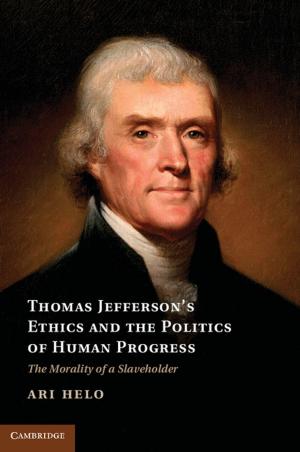Shakespeare and Manuscript Drama
Canon, Collaboration and Text
Fiction & Literature, Literary Theory & Criticism, British, Nonfiction, Entertainment, Performing Arts| Author: | James Purkis | ISBN: | 9781316452394 |
| Publisher: | Cambridge University Press | Publication: | June 13, 2016 |
| Imprint: | Cambridge University Press | Language: | English |
| Author: | James Purkis |
| ISBN: | 9781316452394 |
| Publisher: | Cambridge University Press |
| Publication: | June 13, 2016 |
| Imprint: | Cambridge University Press |
| Language: | English |
How did Shakespeare write his plays and how were they revised during their passage to the stage? James Purkis answers these questions through a fresh examination of often overlooked evidence provided by manuscripts used in early modern playhouses. Considering collaboration and theatre practice, this book explores manuscript plays by Anthony Munday, Thomas Middleton, and Thomas Heywood to establish new accounts of theatrical revision that challenge formerly dominant ideas in Shakespearean textual studies. The volume also reappraises Shakespeare's supposed part in the Sir Thomas More manuscript by analysing the palaeographic, orthographic, and stylistic arguments for Shakespeare's authorship of three of the document's pages. Offering a new account of manuscript writing that avoids conventional narrative forms, Purkis argues for a Shakespeare fully participant in a manuscript's collaborative process, demanding a reconsideration of his dramatic canon. The book will greatly interest researchers and advanced students of Shakespeare studies, textual history, authorship studies and theatre historians.
How did Shakespeare write his plays and how were they revised during their passage to the stage? James Purkis answers these questions through a fresh examination of often overlooked evidence provided by manuscripts used in early modern playhouses. Considering collaboration and theatre practice, this book explores manuscript plays by Anthony Munday, Thomas Middleton, and Thomas Heywood to establish new accounts of theatrical revision that challenge formerly dominant ideas in Shakespearean textual studies. The volume also reappraises Shakespeare's supposed part in the Sir Thomas More manuscript by analysing the palaeographic, orthographic, and stylistic arguments for Shakespeare's authorship of three of the document's pages. Offering a new account of manuscript writing that avoids conventional narrative forms, Purkis argues for a Shakespeare fully participant in a manuscript's collaborative process, demanding a reconsideration of his dramatic canon. The book will greatly interest researchers and advanced students of Shakespeare studies, textual history, authorship studies and theatre historians.















